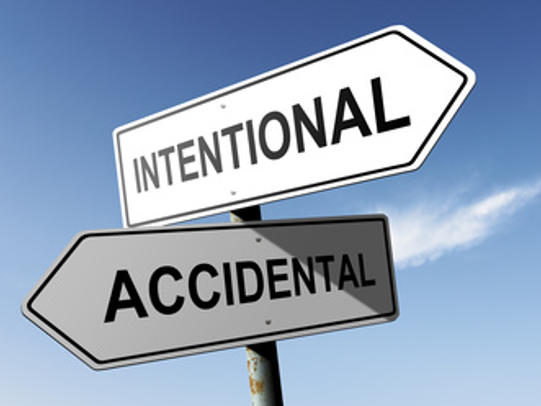What Is Unintentional or Accidental Abuse?

 It is worth reminding you that not all abuse is deliberate or intentional!
It is worth reminding you that not all abuse is deliberate or intentional! Something as simple as neglecting to counsel a patient on their medication which in turn leads to the medication being taken incorrectly and causing harm could be classed as unintentional or accidental abuse. The counter member did not mean to cause the harm, but the harm still happened, and this is still abuse because the patient was neglected. It reminds us that not all abuse is deliberate but deliberate or not it is still abuse. Although not an exclusive list other examples of unintentional abuse could be psychological abuse by counselling a patient /customer on a sensitive subject when other patients / customers can over hear the conversation and the humiliation this could cause. Even selling a medicine the customer did not truly need could be classed as financial abuse. This applies to children as well as adults!
Unintentional child abuse is when a parent or caregiver causes harm to a child without deliberate intent. Whilst abuse can be unintentional, such actions can harm the child’s physical and mental well-being. In many cases, poverty plays a significant factor in unintentional child abuse with children experiencing neglect in different ways.
What Constitutes Neglect?

Neglect can be difficult to detect as the signs aren’t always obvious. It is estimated that 10% of children in the UK have experienced neglect through no fault of their own. According to the NSPCC, there are four types of neglect that children can experience:
Emotional Neglect
Emotional neglect is a type of unintentional child abuse whereby parents or caregivers fails to nurture a child, give them love and show them affection. Emotional neglect can also come in the form of humiliating a child or insulting them. Emotional neglect can devastate a child’s life, and the effects can last long into adulthood.
Physical Neglect
Physical neglect occurs when a parent or caregiver fails to meet a child’s physical needs, such as food, clothing, or shelter. Physical neglect can be unintentional however no child deserves to live a life without basic human needs.
Medical Neglect
Medical neglect is refusing to give your child proper health care. For example, not taking your child to the dentist or ignoring medical recommendations are forms of medical neglect.
Educational Neglect
When parents or caregivers fail to send their children to school, they are neglecting their educational needs and preventing their development. Educational neglect can be unintentional, for example, a parent may be bed-bound and unable to take a child to school, however, all children deserve a right to education and withholding this right from them is a form of neglect.

Unintentional or Accidental abuse